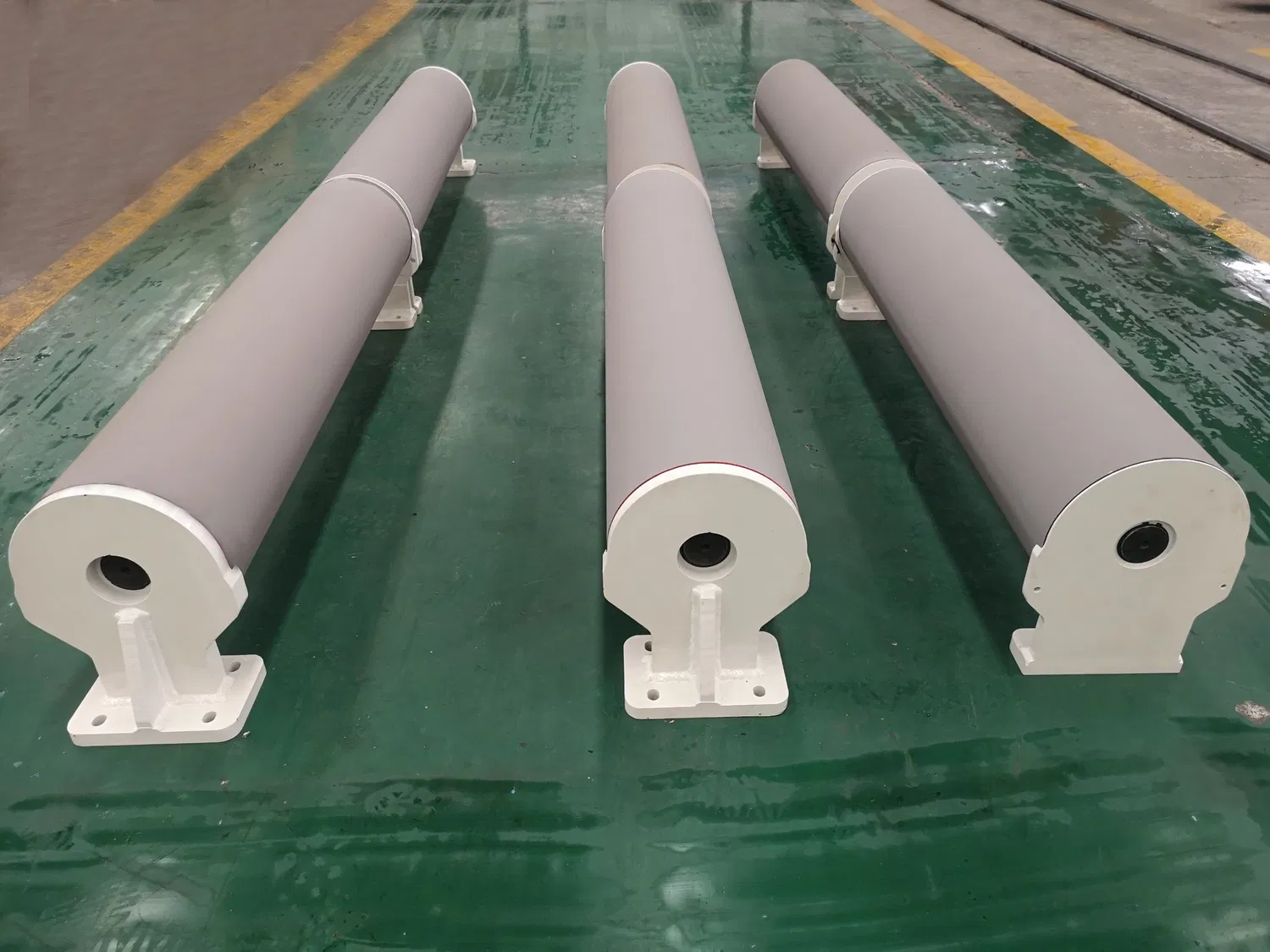Customized roll solutions for tissue and toilet paper manufacturing are increasingly becoming the cornerstone of efficient and profitable operations within the paper converting industry. The days of one-size-fits-all approaches are fading as manufacturers realize the significant advantages of tailoring roll specifications to their specific equipment, production processes, and desired end-product characteristics. This includes everything from core diameter and roll width to paper grade and winding tension. Investing in these customized solutions translates to reduced waste, increased production speeds, and ultimately, a superior final product for the consumer. The difference between standard and customized can be surprisingly significant, impacting everything from machine downtime to customer satisfaction.
The Core Concepts of Customized Roll Solutions
At the heart of customized roll solutions lies a deep understanding of the entire tissue and toilet paper manufacturing process. It's not just about slapping a roll of paper onto a machine; it's about optimizing every parameter to achieve maximum efficiency. This involves a meticulous assessment of the machinery being used, the type of paper being processed (virgin pulp, recycled fiber, or a blend), the desired softness and absorbency of the final product, and the packaging requirements. For instance, a higher grade tissue might require a specific winding tension to prevent tearing or wrinkling during the converting process. Similarly, the core diameter of the roll can impact the speed at which the machine can operate. Customized roll solutions take all of these factors into account, ensuring seamless integration and optimal performance. Many professional manufacturers recognize that this detailed consideration significantly decreases operational bottlenecks.
Material Matters: Choosing the Right Paper Grade
The selection of the appropriate paper grade is a crucial element in customized roll solutions. Different tissue and toilet paper products demand varying levels of strength, absorbency, and softness. For example, a premium, multi-ply facial tissue requires a higher-quality paper with excellent softness characteristics compared to a standard single-ply toilet paper. Recycled paper options offer a more environmentally friendly choice, but they may require adjustments to the roll specifications to ensure consistent performance on the converting line. Understanding the specific properties of each paper grade and how it interacts with the manufacturing equipment is essential for creating a truly customized solution. Frankly, choosing the wrong paper can lead to endless headaches down the line, from frequent breaks to poor product quality.
Practical Applications and Real-World Benefits
The benefits of embracing customized roll solutions extend far beyond simply improving the performance of your machinery. They can have a direct impact on your bottom line. Reduced waste, for example, translates to significant cost savings over time. Improved production speeds mean you can produce more product in the same amount of time, increasing your overall efficiency and profitability. And, perhaps most importantly, a higher-quality final product leads to increased customer satisfaction and brand loyalty. Consider a scenario where a manufacturer was experiencing frequent paper breaks during the converting process. By implementing a customized roll solution with optimized winding tension and a higher-strength paper grade, they were able to reduce the number of breaks by 80%, resulting in a substantial increase in production efficiency and a decrease in wasted materials. Worth noting is how customer complaints diminished after these improvements.
Another crucial aspect is minimizing downtime. Think about it: every minute a machine is stopped for maintenance or repairs is lost production time. Customized roll solutions can help to reduce downtime by ensuring that the rolls are perfectly matched to the machinery, minimizing the risk of jams, breaks, or other malfunctions. For instance, the proper core size and roll density can minimize the wobble and vibration that can cause machine components to wear out prematurely. A well-designed roll ensures smooth unwinding, consistent tension, and reduced stress on the converting equipment. In essence, it's an investment in the long-term health and performance of your manufacturing line.
How We Can Help Optimize Your Production
At our company, we specialize in providing tailored roll solutions designed to meet the unique needs of tissue and toilet paper manufacturers. We work closely with our clients to understand their specific challenges and goals, and then we develop customized solutions that optimize their production processes. This might involve recommending specific paper grades, adjusting winding tensions, or modifying core diameters. We offer a comprehensive range of services, from initial consultation and assessment to ongoing support and maintenance. Our team of experienced engineers and technicians are dedicated to helping our clients achieve maximum efficiency and profitability. The key to our success lies in our collaborative approach and our commitment to delivering exceptional results. We've seen first-hand how even small adjustments can yield significant improvements.
Our collaborative process begins with a thorough assessment of your current operations. We analyze your machinery, evaluate your paper usage, and identify any areas where improvements can be made. This might involve conducting on-site inspections, analyzing production data, and interviewing key personnel. Based on our findings, we develop a customized roll solution that is tailored to your specific needs. This solution might include recommendations for different paper grades, adjustments to winding tensions, or modifications to core diameters. We then work closely with you to implement the solution and monitor its performance, making adjustments as needed to ensure optimal results.
The Future of Tissue and Toilet Paper Manufacturing
The future of tissue and toilet paper manufacturing is undoubtedly leaning towards greater customization and optimization. As consumers demand higher-quality products and manufacturers face increasing pressure to reduce costs and improve sustainability, customized roll solutions will become even more critical. Expect to see further advancements in paper technology, automated manufacturing processes, and data-driven optimization techniques. Furthermore, the growing emphasis on environmental responsibility will drive demand for more sustainable paper options and more efficient manufacturing processes. Are you ready to embrace these changes and take your operations to the next level? Interesting, isn’t it, how something as seemingly simple as a paper roll can have such a profound impact.
Addressing Common Challenges with Tailored Solutions
Many tissue and toilet paper manufacturers face common challenges, such as inconsistent paper quality, frequent machine downtime, and high waste rates. Customized roll solutions can help to address these challenges by ensuring that the rolls are perfectly matched to the machinery and the production process. For example, inconsistencies in paper thickness or density can lead to uneven winding and increased risk of breaks. By working with a supplier who can provide consistent, high-quality paper rolls, manufacturers can minimize these issues and improve the overall performance of their converting lines. Another common challenge is static electricity, which can cause paper sheets to stick together, leading to jams and production delays. Static electricity can be mitigated through proper grounding techniques and the use of anti-static coatings on the paper rolls. Speaking of which, have you considered anti-static treatments for your current roll solutions?
Ensuring Consistent Quality and Performance
Maintaining consistent quality and performance is crucial for ensuring customer satisfaction and brand loyalty. Customized roll solutions can help to achieve this by ensuring that each roll meets specific quality standards and performance requirements. This might involve conducting rigorous testing of the paper's strength, absorbency, and softness, as well as monitoring the winding tension and core diameter. It's also important to track the performance of the rolls on the converting line, identifying any issues or anomalies that may arise. By using data-driven insights to optimize the roll specifications, manufacturers can ensure that their products consistently meet the expectations of their customers. According to my experience, a proactive approach to quality control is essential for long-term success.
Conclusion: The Value of Customization
In conclusion, customized roll solutions are not just a nice-to-have; they are a necessity for tissue and toilet paper manufacturers looking to optimize their operations, reduce waste, and enhance product quality. By tailoring roll specifications to their specific equipment, production processes, and desired end-product characteristics, manufacturers can achieve significant improvements in efficiency, profitability, and customer satisfaction. The investment in customized roll solutions is an investment in the future of your business, ensuring that you remain competitive in an ever-evolving market. Remember the impact even seemingly small adjustments can make!



